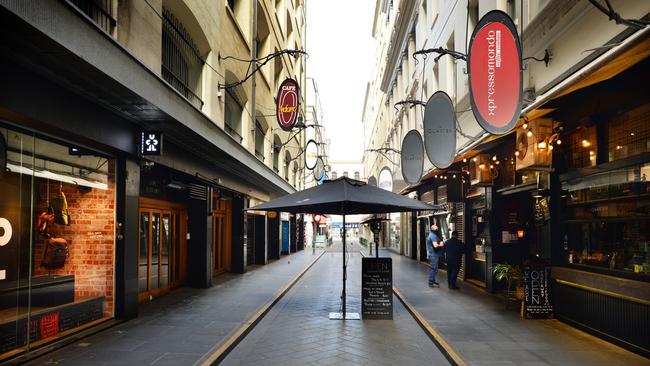Tax cuts versus welfare – the winner for the economy is JobKeeper and JobSeeker
Rewarding Australians for doing nothing might not be in the Coalition’s DNA, but they risk hurting the economy’s COVID-19 recovery if they slash welfare payments while giving others tax cuts, writes Anthony Keane.
Saver HQ
Don't miss out on the headlines from Saver HQ. Followed categories will be added to My News.
Opinion: Tax cuts are coming for Australian workers, possibly to be announced as early as next month’s Federal Budget.
But there’s a growing push by economists, researchers and social advocacy groups for the government to forget about cutting taxes and instead hand cash to the lowest-income Australians.
While this may sound unfair to employees giving between 21 per cent and 47 per cent of their weekly wage back to the government, it makes sense if we want Australia’s economy to recover as best as possible from the pandemic.
The JobKeeper and JobSeeker coronavirus payments are about to start scaling back, which will reduce the amount of money circulating in shops and other businesses.
A Deloitte Access Economics report, commissioned by the Australian Council of Social Services and released last week, found cutting JobSeeker back to pre-COVID levels would cost 145,000 jobs over the next two years and shrink economic growth by $31.3bn.
That’s because people who receive JobSeeker are likely to spend it rather than squirrel it away or pay it off mortgages.

JobSeeker, previously called Newstart, was effectively doubled in March through the coronavirus supplement that boosted unemployment benefits from $565 to $1100 a fortnight.
It’s scheduled to reduce to $800 a fortnight from September 25 and then back to the original $565 on December 31 — although the government may alter that.
JobKeeper wage subsidies are also being wound back this month to lower levels, from $1500 a fortnight for all recipients to $1000 for those working more than 20 hours a week and $650 for those working less.
Millions of Australians have received a large cash boost from these payments this year, many receiving more than they did from their jobs and unemployment benefits pre-COVID.
The government can’t shower welfare cash on the nation forever, but it’s not a good look to be bringing forward tax cuts for those who are lucky enough to have kept their jobs.
It’s not in the Coalition’s DNA to reward people for doing nothing but these are not normal times, and higher unemployment benefits and other handouts mean consumers spend money.
Worries that it will consign Australians to decades of painful debt repayments have subsided, largely because the world’s ultra-low interest rates mean the government can borrow billions of bucks for next to nothing.
However, it’s a balancing act. Some businesses have had trouble attracting staff this year where unemployed people could not see the point of working when they’re already getting $1100 fortnightly.
Reducing JobSeeker this month will prompt some to seek more work, but hopefully it won’t go back to $565 a fortnight — a rate that many smart minds argue traps recipients in poverty.
Remember that many of those on JobSeeker today are victims of the coronavirus’s devastating impact on businesses.
I personally would benefit from the next round of tax cuts but would feel horrible receiving them when so many Australians are in financial pain. Entire industries are still shut down. Tax cuts will come eventually, but we should wait until we’re well on the road to financial recovery.

